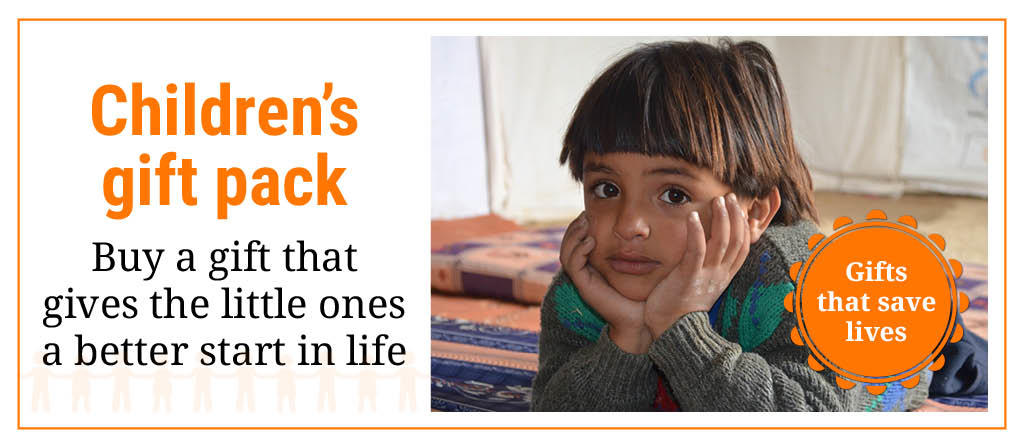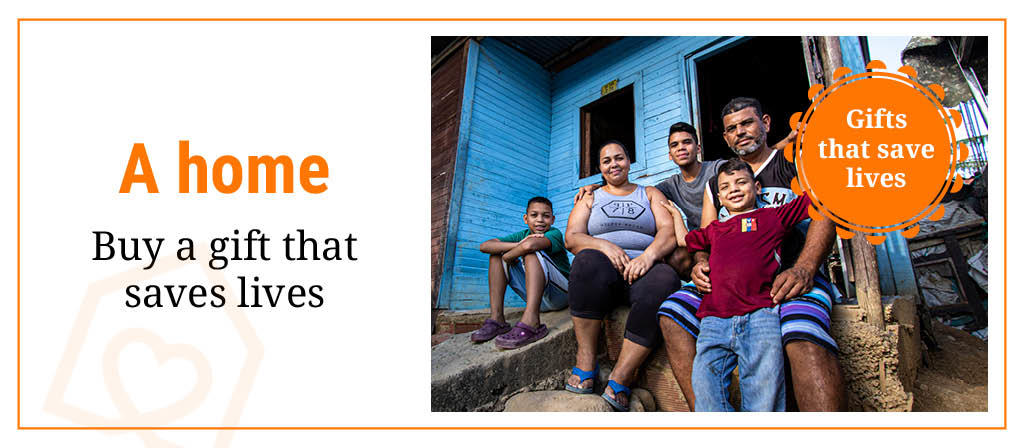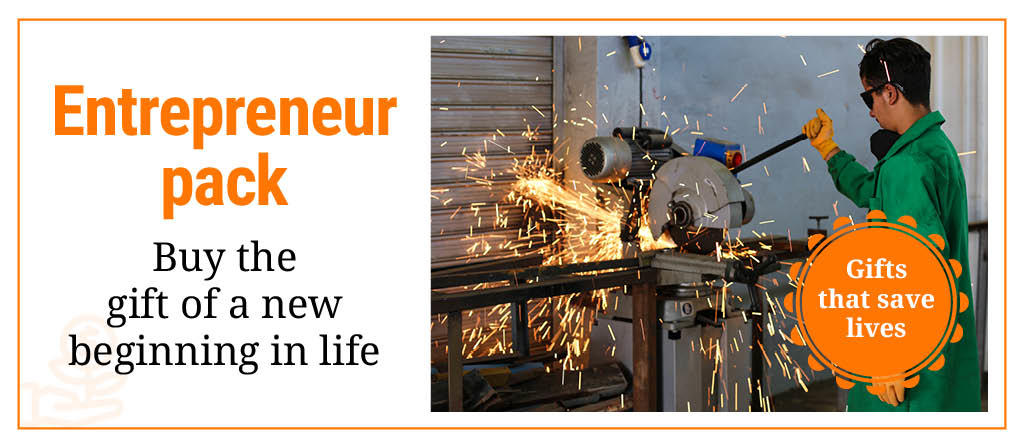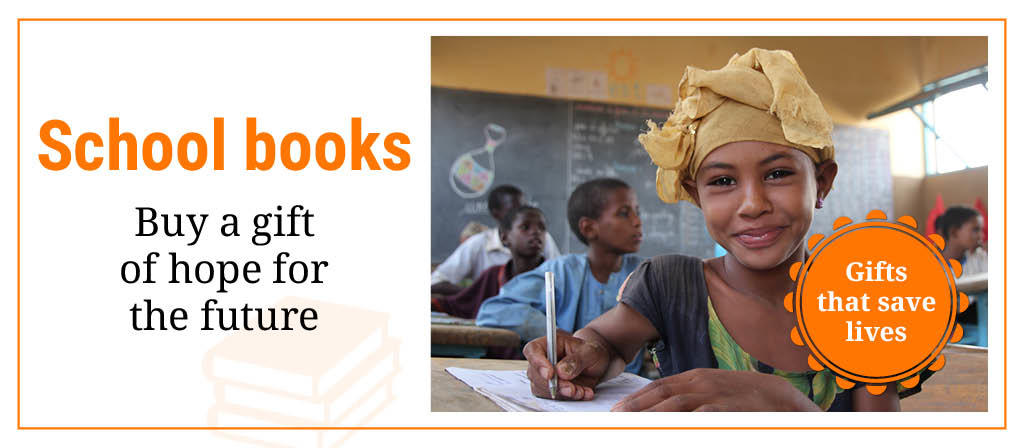In a crowded neighbourhood in downtown Mafraq, north-east Jordan, Muhammed lives with his family. Their small house consists of a bedroom, a living room, a kitchenette, and an unfinished bathroom. When you enter, you can hear the sounds of children, who are constantly playing and have amazing energy.
Bassam, 4, and Hussam, 2, Muhammed’s two young sons, welcome us to their home. As soon as we take a seat, Bassam, knowing this is the only opportunity to play with his father’s phone, asks for it in front of the visitors in order to take advantage of the situation.

Muhammed has a beautiful relationship with his children. “I named my son Bassam after my older brother, whom I consider to be my pride and role model,” he says. “My favourite time with him is when I take him out on my bike.”
As the children settle down to play, Muhammed begins to tell us about his journey.
Muhammed’s journey
“We came from Syria to Jordan in 2012. I was almost 19 years old. I first escaped from Homs to Aleppo with my cousins, and we stayed there for about five months. Meanwhile, the rest of my family went to Jordan and contacted us to inform us of their arrival.
“We travelled from Aleppo to Rif Dimashq and then on to Dara’a, where there were huge numbers of people. From there we walked to the border – a dangerous night journey – until we finally reached Jordan and the Al Bashabsheh refugee camp.”
Our city Homs was destroyed ... No-one we knew is left in the neighbourhood where we used to live.
“I felt happy when I arrived because I had found a safe place, but at the same time I felt sad because I had left my country. I thought that I would come to Jordan for a month, two months, maybe a year or two…but I have stayed here to this day. Now there is no hope of returning to Syria.
“Our city Homs was destroyed. Our house was levelled because of the bombing and when our neighbours told us what had happened we were very sad. No-one we knew is left in the neighbourhood where we used to live. Everyone left at the time of the war because of the siege and the violence following those events.”
Memories of childhood
When sitting with Muhammed, you can see his eagerness to talk about his life in Syria before the war. He remembers the neighbourhood where he grew up in Homs very well, and his smile is different when he mentions the old days and his friends back home.
Just like his son Bassam, Mohammad used to play computer games with his friends. He remembers fondly how he would spend long hours in video game shops.
“I miss my childhood days in Syria so much,” he says. “I will never forget the video games store I used to go to with my friends. We would sit there for long hours and sometimes stay until sunrise.”

Muhammed left school when he was in the fourth grade. At that time, he did not realise that the situation in Homs would develop in the way that it has today. His family had a big house, and his father and older brother worked in the livestock and butchery industry.
Muhammed believed that life would be easy. He had no idea that his house would be flattened by bombing in 2012. And he never imagined that he would one day be a refugee in Jordan, collecting bread for a living.
“This is not Homs”
When Muhammed and his family first arrived in Jordan, they struggled to make ends meet.
“I stayed in Al Bashabsheh camp for about a month and then moved out with my family to an area among the Jordanian host community in Mafraq. We didn’t have a single dinar of cash. I started doing various construction jobs and also worked on farms nearby. Whatever kind of work was available, I took,” Muhammed recalls.
The neighbourhood was not our neighbourhood, the people were not the people I knew, and the country was not ours.
But money wasn’t the only problem they had. The cultural adjustment was just as tough.
“The hardest thing for me was to adapt,” he continues. “When I arrived and used to walk around the area, the neighbourhood was not our neighbourhood, the people were not the people I knew, and the country was not ours.”
“I started to forget what had happened to us because of work. I would go to work and then go to sleep right away. The first job I found was in the farms. There were many Syrians who had immigrated to Jordan before the war in Syria. They helped me to get a job in agriculture.
“After that, I learned butchery from my older brother. I work seasonally in the butchery profession, such as during Eid al-Adha [the holiday which Muslims celebrate by distributing meat to the poor and needy].
“But now my job is to collect bread. I go out on my bicycle and start collecting bread and drying it so that I can sell it to the shepherd. This job is not financially viable – I get a maximum wage of 5 Jordanian dinars [around 7 US dollars] per day – but there is no other option.”
The biggest challenge is poverty
It’s clear that the house where Muhammed lives is in need of many repairs. Iron bars are sticking out of the roof, moisture is eating away at the walls, and the doors are old and rusty. And as winter approaches, the conditions become even worse.

“Wintertime becomes really difficult because of water entering the house, causing moisture in the walls and mould, which affects the children,” says Muhammed.
This is normal, according to Muhammed, for a family on a tight budget. They can only afford to pay $100 a month in rent because of their difficult financial situation. A house such as theirs is considered the best option available.
“The biggest challenge now is poverty,” he continues. “A lot of aid has been cut off from us. I do not have a monthly salary and the nature of my work is useless. I don’t know, maybe I have bad luck, but every time I apply for a new job opportunity I don’t get it.”
Help is at hand
But help is at hand. The Norwegian Refugee Council (NRC) is supporting Muhammed and his family with essential repairs before winter sets in.
“I was searching on Facebook when I found an ad for the Norwegian Refugee Council and signed up for help renovating the house. Two months later, NRC contacted me. I didn’t realise that once I registered, I would get support,” says Muhammed.
“Soon afterwards, a team came to inspect the house and agreed to restore the ceiling, walls, doors and kitchen. I haven’t been able to pay the rent for the past two months. But the owner of the house is a good person who understands our difficult situation.”

Muhammed wants his children to be better prepared than he was to meet life’s challenges. After his difficulties in Jordan, he understands the value of education.
“I want my children to be involved in education when they grow up and not leave it,” he says. “In fact, my dream is for my children to have an education and their future to be better than the one I had. And of course, to go back to Syria, because it’s our country.”






